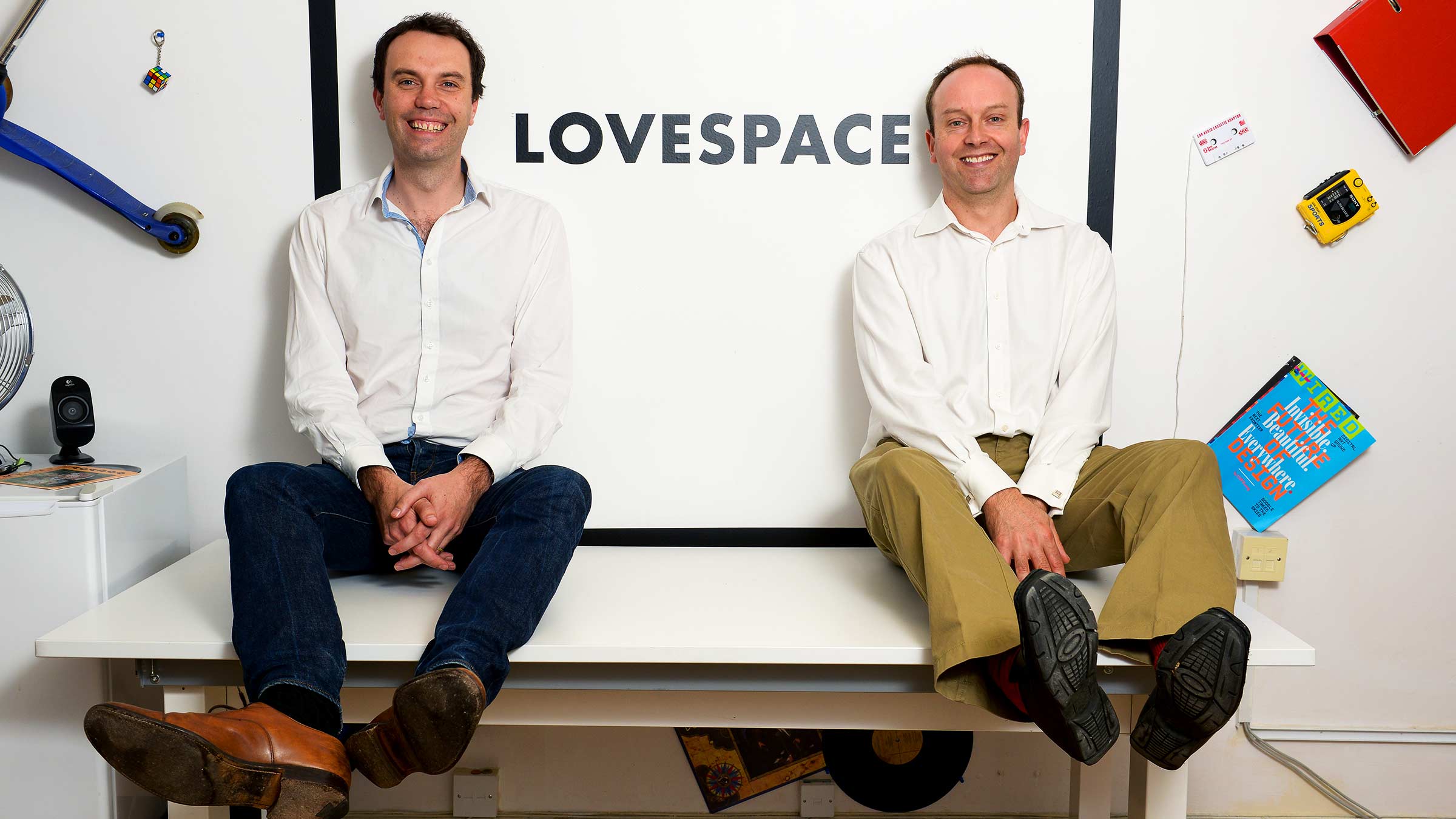It’s Valentine’s Day, and love is in the air! Or, at least it is for storage company Lovespace, which has recently released its new Secret Storage Service for co-habiting couples looking to store their duplicate items. There’s a lot more to the company than just services for budding partners, though. Founded by Streetcar entrepreneur Brett Akker, it has undergone a design and branding overhaul in order to shake up the self-storage sector, bringing in user-friendly interfaces and a new emphasis on digital. And, given joint venture agreements with companies like Oxfam and Mothercare, it seems as though Lovespace has happened upon a sector-shifting way of operating.
Having sold his Streetcar car-sharing club to Zipcar for an estimated £32m in 2010, Brett decided that a similarly innovative model could work wonders for the storage industry. With single-price delivery and collection, plus a standard £4.95 monthly rate for people’s boxes, Lovespace provides a plan that’s easy to understand and execute, for both the company and the customer. With City Link as a delivery partner, the service is able to be UK-wide, and as head of marketing Hannah Flaherty says, “we supplement this with our own fleet to provide a personal service without it costing the earth.”
Partnerships have been intrinsic to Lovespace’s growth over the last couple of years. As well as the City Link arrangement the firm has successfully engineered deals with Oxfam and Mothercare in order to grow its networks and raise its profile. With Oxfam, the partnership is bound up in the innovation potential of donations, with people able to give unwanted items through a special Oxfam box that is delivered along with a regular order. The Mothercare joint venture – which operates on a deferred delivery basis, with a one-off fee giving unlimited storage – is particularly interesting as it shows the potential for Lovespace to engage with a variety of very different potential markets.
This cross-sector potential is part of what has driven Lovespace’s success in the world of venture capital and seed funding; the firm has so far attracted almost £500,000 from investors including Smedvig Capital and First Risk Capital. According to MD Steve Folwell, a large part of the angel funds have been directed towards reimagining the company’s customer-facing persona: “developing a strong brand was vital in order to differentiate ourselves from both traditional and emerging competition.” In an increasingly crowded sector, Lovespace certainly stands out with its minimal look and informal editorial styling. Infrastructure and marketing are also high on Lovespace’s agenda, with projects such as the Secret Storage Service going a long way to carving out an individual niche for the company.
Another crucial way Lovespace has looked at progressive change is in its hiring. Last year, it pulled off a coup by bringing in Steve, formerly business development director at Guardian Media Group. He is already impacting change within the organisation, developing third-party deals like those detailed above and emphasising the “collaborative”, “intoxicating” potential in Lovespace’s business plan. With Brett’s entrepreneurial flair and Steve’s digital and high-growth experience at the helm of the company, Lovespace looks set to grow and grow.
What Brett has done at Lovespace illustrates the extent to which clever marketing and an easy-to-understand business model can improve a company’s fortunes. Which other start-up companies are making a virtue out of their simplicity? Let me know at moira@thembsgroup.co.uk, and have a wonderful weekend.








